第6章 I(5)
I referred, when first reporting this curious case of coincidence, with suggestive circumstances, to two others, one of which I said was the most picturesque and the other the most unlikely, as it would seem, to happen. This is the first of those two cases:--Grenville Tudor Phillips was a younger brother of George Phillips, my college classmate, and of Wendell Phillips, the great orator. He lived in Europe a large part of his life, but at last returned, and, in the year 1863, died at the house of his brother George. I read his death in the paper; but, having seen and heard very little of him during his life, should not have been much impressed by the fact, but for the following occurrence: between the time of Grenville Phillips's death and his burial, I was looking in upon my brother, then living in the house in which we were both born. Some books which had been my father's were stored in shelves in the room I used to occupy when at Cambridge. Passing my eye over them, an old dark quarto attracted my attention. It must be a Bible, I said to myself, perhaps a rare one,--the "Breeches" Bible or some other interesting specimen. I took it from the shelves, and, as I did so, an old slip of paper fell out and fluttered to the floor. On lifting it I read these words:
The name is Grenville Tudor.
What was the meaning of this slip of paper coming to light at this time, after reposing undisturbed so long? There was only one way of explaining its presence in my father's old Bible;--a copy of the Scriptures which I did not remember ever having handled or looked into before. In christening a child the minister is liable to forget the name, just at the moment when he ought to remember it. My father preached occasionally at the Brattle Street Church. I take this for granted, for I remember going with him on one occasion when he did so. Nothing was more likely than that he should be asked to officiate at the baptism of the younger son of his wife's first cousin, Judge Phillips. This slip was handed him to remind him of the name: He brought it home, put it in that old Bible, and there it lay quietly for nearly half a century, when, as if it had just heard of Mr. Phillips's decease, it flew from its hiding-place and startled the eyes of those who had just read his name in the daily column of deaths. It would be hard to find anything more than a mere coincidence here; but it seems curious enough to be worth telling.
The second of these two last stories must be told in prosaic detail to show its whole value as a coincidence.
One evening while I was living in Charles Street, I received a call from Dr. S., a well-known and highly respected Boston physician, a particular friend of the late Alexander H. Stephens, vice-president of the Southern Confederacy. It was with reference to a work which Mr. Stephens was about to publish that Dr. S. called upon me. After talking that matter over we got conversing on other subjects, among the rest a family relationship existing between us,--not a very near one, but one which I think I had seen mentioned in genealogical accounts. Mary S. (the last name being the same as that of my visitant), it appeared, was the great-great-grandmother of Mrs. H. and myself. After cordially recognizing our forgotten relationship, now for the first time called to mind, we parted, my guest leaving me for his own home. We had been sitting in my library on the lower floor. On going up-stairs where Mrs. H. was sitting alone, just as I entered the room she pushed a paper across the table towards me, saying that perhaps it might interest me. It was one of a number of old family papers which she had brought from the house of her mother, recently deceased.
I opened the paper, which was an old-looking document, and found that it was a copy, perhaps made in this century, of the will of that same Mary S. about whom we had been talking down-stairs.
If there is such a thing as a purely accidental coincidence this must be considered an instance of it.
All one can say about it is that it seems very unlikely that such a coincidence should occur, but it did.
I have not tried to keep my own personality out of these stories.
But after all, how little difference it makes whether or not a writer appears with a mask on which everybody can take off,--whether he bolts his door or not, when everybody can look in at his windows, and all his entrances are at the mercy of the critic's skeleton key and the jimmy of any ill-disposed assailant!
The company have been silent listeners for the most part; but the reader will have a chance to become better acquainted with some cf them by and by.